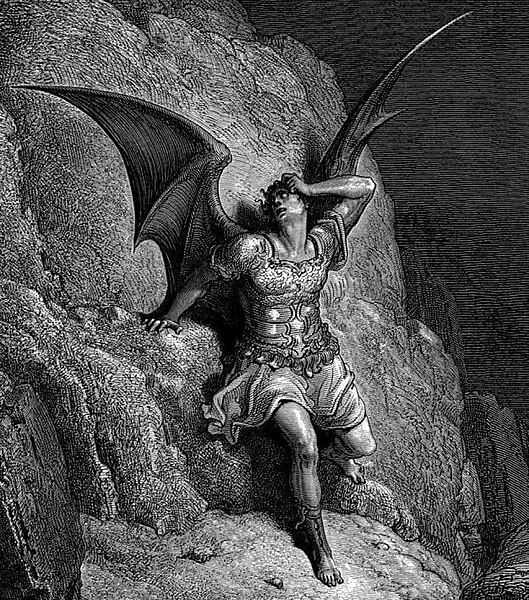Note: If you wish to receive, via e-mail, (1) my weekly newsletter or (2) daily copies of these posts, write to me at rrbates1951@gmail.com. Comments may also be sent to this address. I promise not to share your e-mail with anyone. To unsubscribe, write here as well.
Wednesday
Special Prosecutor Jack Smith has just announced that Donald Trump, had he not been just reelected president, would have been prosecuted for the January 6 coup attempt. One of Donald Trump’s special powers has been his ability to escape accountability, which he has accomplished by abusing the law in the manner of his mentor Roy Cohn, stacking the Supreme Court, and playing a special brand of resentment politics. So are we to conclude that he has gotten away with everything?
In Anthony Trollope’s Small House at Allingham, which I’ve just finished, the author addresses this very question. Although young and stylish Crosby has promised to marry the wonderful but penniless Lily Dale, a week later, blinded by the lights of high society, he makes a second marriage proposal, this time to the daughter of a peer. While Lily’s friends and families are infuriated at the way Crosby appears to escape all punishment, Trollope points out that he doesn’t escape at all.
That’s because Crosby is miserable in his mercenary marriage, with a wife that doesn’t love him and an aristocratic family that bullies him. How much more joyous his life would be, he thinks, had he married the loving and caring Lily, despite her lack of money. While Lily’s friends are described as “wretched in thinking that this man was escaping without punishment,” Trollope assures us that he’s suffering “as much as they could desire.” They just don’t realize it:
Those who offend us are generally punished for the offence they give; but we so frequently miss the satisfaction of knowing that we are avenged! It is arranged, apparently, that the injurer shall be punished, but that the person injured shall not gratify his desire for vengeance.
So is Trump being punished in ways we cannot see? After watching Trump attack fire-ravaged California and direct a volley of hate tweets at Jack Smith, television comic Seth Meyers, and California Governor Gavin Newsom, I was struck by just how miserable he is. He appears shackled to those he attacks.
I borrow the image from a recent New Yorker article about Paradise Lost, which notes how Milton’s Satan is tied to his victims. I’ve compared Trump to Satan multiple times—they are both supreme narcissists—and author Merve Emre observes that, for all his success in making humans miserable, Satan never experiences the joy of true freedom. Emre describes Milton’s view of such freedom as follows:
In his 1654 treatise “The Second Defence of the People of England,” Milton wrote, “Know that to be free is the same thing as to be pious, to be wise, to be temperate and just, to be frugal and abstinent, and lastly, to be magnanimous and brave.”
Satan, by contrast, has a debased version of freedom:
By the sun’s blinding rays, we can perceive how depraved Satan’s freedom is. By one hand, he is bound to himself, to his impiety, his recklessness, his envy and pride, his guilt and spite. “Which way I fly is hell; myself am hell,” he laments. By the other hand, he is bound to the Almighty, whom, as the critic John Guillory has observed, Satan imitates. But God’s authority tends toward reason and grace; Satan’s is a poor, perverse copy. His every thought is shaped in reaction to God’s glory. It is as if God had never lifted Satan’s chains.
For his part, Trump is a slave to his resentment. Satan’s line “myself am hell”—which is inspired by Mephistopheles’s line in Doctor Faustus “why this is hell, nor am I out of it”—is Trump’s existential state. When Satan says, “The mind can make a heaven of hell or hell of heaven,” he accurately describes how both he and Trump have made perpetual hells for themselves.
One should note that Marlowe in his turn borrows from Dante to describe Mephistopheles’s condition. As the devil puts it,
Think’st thou that I, who saw the face of God,
And tasted the eternal joys of heaven,
Am not tormented with ten thousand hells,
In being depriv’d of everlasting bliss?
Dante’s damned have consigned themselves to everlasting torment because they choose their compulsions over God’s love. Some are aware of what they have done, others just blindly writhe. For all the similarities between Satan and Trump, Satan appears more self-aware. Trump seems to be in hell without knowing it, more Grendel in this regard than Satan.
While I believe Trump is suffering, I draw no pleasure from it. That’s because I’m far more concerned about the effects of that suffering: those who are miserable often do all they can to make others miserable. “For only in destroying I find ease/ To my relentless thoughts,” Satan says, providing a profound insight into why Trump behaves as he does.


